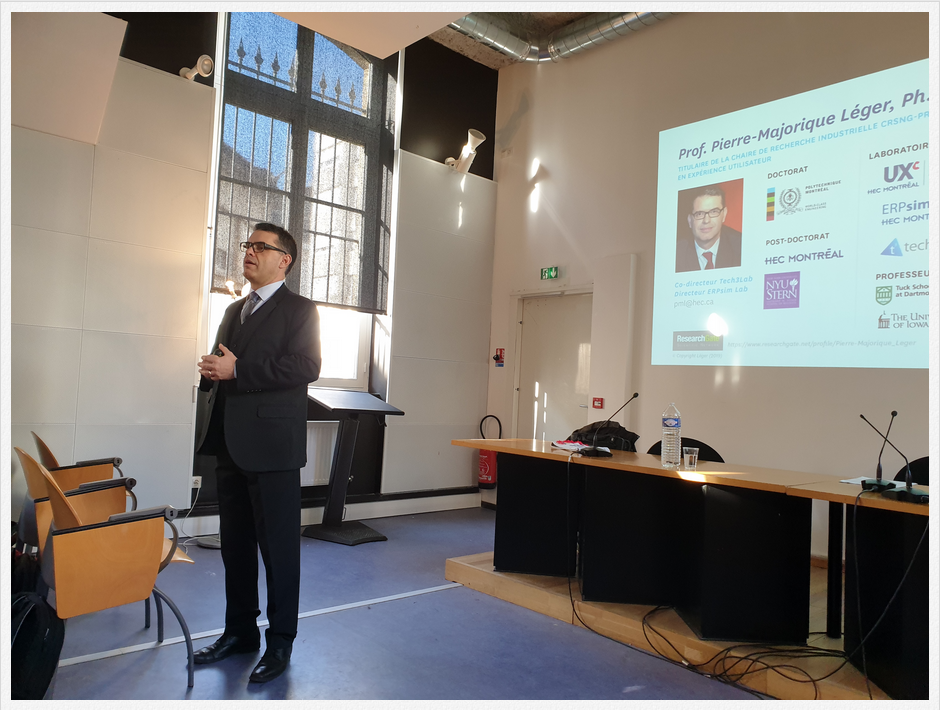Expérience utilisateur, neurosciences et systèmes d’information
Le 7 février dernier, le Professeur Marjorique Léger, invité par Lyon 2 | Coactis pour le compte de l’Ecole Doctorale SEG a proposé un séminaire de recherche sur les neurocisences en gestion.
Measuring what users really experience: Using neuroscience to inform information system research
Prof. Pierre-Majorique Léger (HEC Montréal)
Neuro-Information-Systems (NeuroIS) relies on neuroscience and neurophysiological knowledge and tools to better understand the development, use, and impact of information and communication technologies. NeuroIS seeks to contribute to the development of new theories that make possible accurate predictions of IS-related behaviours, and the design of information systems that positively affect economic and non-economic variables (e.g., productivity, satisfaction, adoption, well being). In this conference, Dr Léger will present recent research projects conducted at HEC Montreal Tech3lab to demonstrate the contributions of neuroscience tools and theories to information systems research and social sciences in general.
Bio : Professor Pierre-Majorique Léger is a researcher, inventor and entrepreneur. He is the senior chairholder of the NSERC Industrial Research Chair in User Experience (UX). His research seeks to improve the user experience (UX) while learning or using technology. He does this by analyzing massive amounts of bio-physiological data that are generated during human-IT interactions (HCI), which allow him to qualify emotion and cognitive responses in users. His industrial research partners include Deloitte Digital, Sobeys, Desjardins, D-Box, Videotron, Banque Nationale, CN and CAE. He is a Full professor of IT at HEC Montreal, as well as invited professor at the prestigious Tuck School of Business, Dartmouth College and the Henry B. Tippie School of Management at the University of Iowa. He is the author of over 50 scientific articles, he holds at least ten invention patents and has also been involved with several start-ups. He holds a Ph.D. in industrial engineering from École Polytechnique de Montréal and has done post-doctoral studies in information technologies at HEC Montréal and NYU Stern School of Business. He is the co-director of the Tech3Lab, a research laboratory and devoted to the investigation of human factors in information technologies. He is also the director of the ERPsim Lab and the principal inventor of ERPsim, a simulation game to teach ERP concepts, which is now used in more than 30,000 students per year in 225 universities worldwide and several hundreds of organizations such as Boeing, IBM and SAP. He is currently financed by The Natural Sciences and Engineering Research Council of Canada, Social Sciences and Humanities Research Council, and Fonds de Recherche du Québec – Société et Culture. He is a founding member of the NeuroIS Society, the premier academic organization for scientists and professionals working at the nexus of Information Systems (IS) and neuroscience research and development.

